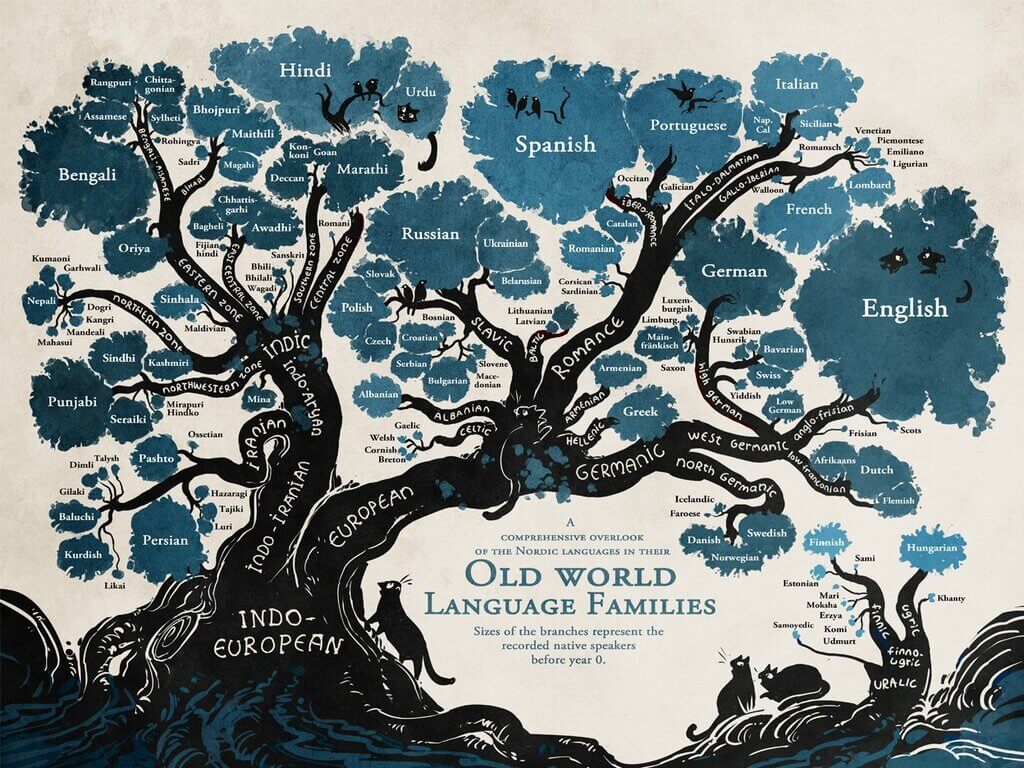translation 2024: humans and ai in global business communications
Despite rapid technological and machine developments, human translation services are still in demand. And e-Residency is here to help translators and agencies with their business setup and needs.

The translation industry in 2024 has seen many changes, driven by the need for global business outreach, technological advancements, and new communication modes.
While the world is in some ways becoming more fragmented and globalisation is declining, international enterprises continue efforts to overcome language barriers and add cultural nuances to their communications.
But as new tools to automate translation continue to pop up across every app we use, I am reminded of this cautionary tale, from a few decades ago:

This case (just one of many involving the Welsh language) reminds me of one of the arguments from decades ago about calculator use in schools - if kids don’t learn to do arithmetic themselves, how will they ever know if the calculator is actually correct? (Let’s ignore the other argument teachers used back then, that ‘you won’t always have a calculator in your pocket’, as that one hasn’t aged quite so well...)
That’s why the oversight of a human, who has complete understanding of both sides of the question - whether a calculation or a translation - is essential. And why multilingual humans will always have a vital role in ensuring accuracy, nuance, and common-sense in translation, however much the AIs drive the process and even the need.
Translation is expected to be everywhere…
The industry is of course increasingly influenced by technological innovations, especially in AI and machine translation. Computer-Assisted Translation (CAT) tools have been around in one form or another for many years, automating translation processes and ensuring consistency and accuracy in large volume translations. They have revolutionised traditional translation processes by enhancing efficiency and maintaining high-quality output, in almost real-time nowadays.
More recently, we’re increasingly seeing automated translation in voice-based content like social media videos and live news. While we’re used to making allowances for inaccuracies, as LLMs and GPTs get better, so to do our expectations for voice-based translations. Plus, incorrect proper names, industry terminology, and non-standard accents all combine to create their own unique problems.
But as we all increasingly expect prompt translation to be available everywhere, on demand, the industry is doing well. In 2024, the translation services market is on a growth trajectory, projected to reach USD 46.22 billion by 2028, up from USD 39.37 billion in 2020.
This growth is also attributed at enterprise level, to the rising demand for professional translation services aimed at global market penetration and audience expansion. Major industry players include Lionbridge Technologies Inc., RWS Holdings plc, SDL Plc, and Semantix AB, among others, plus many local agencies specialising in specific language pairings required in different regions around the world. These organisations are at the forefront of integrating advanced technologies with human expertise to meet the growing and diverse needs of the global market.
The industry is also witnessing a shift in language demand, with significant growth in languages such as Mandarin Chinese, German, Spanish, and Arabic, reflecting the geopolitical and economic shifts worldwide.
Enterprising translators create unique careers
Many professional translators specialise in particular pairs, while others are true polyglots, adept at rendering multiple versions with equal fluency. Others specialise in particular forms, as diverse as medical and scientific documentation, to arts and literary translation.
For those with a flair for languages, translation remains a flexible and portable career option, which is not constrained by the in-person travel and high-pressure immediacy of their sister industry, interpreting.
On-platform Technical translation services
People like e-resident Tobias Werner, who studied technical translation, to work as a freelance English-German translator.
This is a great example of the way flexible entrepreneurs can carve out a unique career role by combining two skills and attributes to complement one another: in this case, languages and technical knowledge.
“I studied in Flensburg University of Applied Sciences,” Tobias explained, “we had a lot of German grammar, along with strong technical education. Every semester it would change, we covered mechanical engineering, some electrical, and always in-depth technical learning alongside the linguistic education.
“It was a challenging course, and actually a lot of people quit before they achieved their Diploma in Technical Translation.”
Tobias faced the challenges common to all freelance entrepreneurs who have to wear many hats, and finding some fit better than others. Rather than lean in to the marketing side, he preferred agency work, and built a profile and reputation on the global platform ProZ.com, the “Online Community and Workplace for Language Professionals.”
This offered a consistent flow of varied and interesting work across a range of technical spheres, applying his language talents to a range of technical documents and publications. Some projects aligned well with his personal technical passions, for biking and the cycling industry, while others were dense operating manuals for other industries. “Sometimes things that not many people were ever going to read!” Tobias admitted with a smile. But clearly good examples of scenarios where accuracy and attention to detail was crucial.
He also travelled to gatherings of freelance translators in the ProZ community, in Romania and the Czech Republic. He enjoyed these meetings with fellow professionals, not least because the nature of the work meant that he rarely met directly with end clients.
E-Residency for translators
Estonian e-Residency provided the perfect framework for this, with its borderless infrastructure - even if some German clients were surprised to get an invoice from Estonia, when they were working with a fellow German. But operating as a solopreneur meant that Tobias could manage business travel while administering everything online, as well as smoothing income and costs despite the typical freelance peaks and troughs.
Inevitably though, over his nearly 2 decades in the industry, Tobias witnessed many changes, as the technologies he was translating for began to encroach on the art of translation itself.
“In recent years, some of the work has become less creative,” he reflected. More projects were becoming post-editing, rather than pure translating work. “That’s when they use some machine translation and automation, then they give you the output from that to work on, and edit into a high-quality document.”
This has affected rates, and created something of a race to the bottom in bidding for projects on platforms. “Some translators might prefer to work for peanuts, instead of having no work at all,” he explained, “but others are finding success on LinkedIn, and with their own specialised websites, which is a way better approach.”
Like many other knowledge professions, the translation industry is in flux, facing pressures from globalisation, automation, and competition. Yet, demand is still there, driven by a need for niche specialist knowledge for those moments when a machine-translated gist simply won’t suffice.
Join e-residents like Tobias in setting up your translation services through an Estonian OÜ:
Multilingual Humans Still Needed, in Estonia and beyond
Tobias is presently planning to take an in-house role, working on technical documentation and messaging for one client, who desires a consistent high-quality English language experience, nativising all the content, rather than simply translating one word for another.
Meanwhile, I recently paid a small fortune for some sworn translations of legal documents from English into Spanish, in order that the translated documents would have the same legal status as the originals, a further use-case where human oversight is vital, and professionally indemnified.
Indeed, law is an example of one place where words may have both an everyday meaning, and a very specific and precise one which is slightly different. You cannot presently rely on AI-driven translation to appreciate this nuance, and respond effectively.
The Estonian government’s e-Residency website is presented in several languages (and growing).
For example, the Spanish language website is translated and localised by humans rather than relying on machine translations. This is because corporate, legal, and fiscal information is inevitably dense and obscure in its own right, and liable to turn into baffling word salad if subjected to automated browser rendering. (Watch this space for the launch of the e-Residency website in German very soon!)
A multilingual, globally connected Estonia makes sense. The e-Residency team facilitates a melting pot of languages and cultures, accents, and discourse, bringing together e-residents from all over the world.
Whatever your business vision, you can find the perfect partnerships, technologies, and infrastructure to create it as an e-resident. And just maybe, you’ll need the services of a professional and qualified human translator, to share your ideas with the rest of the world.
Apply for e-Residency
More from e-Residency
- Sign up for our newsletter
- Watch fresh video content - subscribe to our Youtube channel
- Meet our team and e-residents - register for our next Live Q&A

